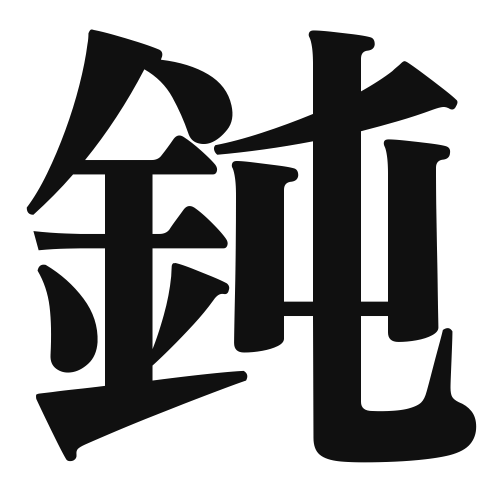1. Overview of Meaning
The kanji “鈍” (don) generally means “dull” or “blunt.” It can refer to a lack of sharpness in physical objects, such as knives, or metaphorically describe someone who is slow to understand or perceive things.
2. Formation and Radical
Formation of the Kanji: The kanji “鈍” is a phono-semantic compound (形声文字), which combines the meaning of the radical and the phonetic component. The left part “金” (kin) relates to metal, while the right part “遁” (ton) suggests the idea of retreat or dullness.
Radical: The radical of “鈍” is “金” (kin), which is associated with metal or metallic objects.
3. Examples of Usage
Common Words and Phrases:
- 鈍感 (donkan) – insensitivity or dullness of feeling
- 鈍器 (donki) – a blunt weapon
Example Sentences in Daily Conversation:
- 彼は鈍感だから、友達の気持ちに気づかない。
- このナイフは鈍っているので、切れ味が悪い。
4. Synonyms and Antonyms
Similar Kanji:
- 鈍い (nibui) – dull, used in a similar context but often refers to sensory perception.
- 鈍重 (donju) – sluggish, often used to describe someone who is slow in movement or thought.
Antonyms:
- 鋭い (surudoi) – sharp, both in terms of physical objects and mental acuity.
- 敏感 (binkan) – sensitive, referring to heightened awareness or responsiveness.
5. Cultural and Historical Background
Relation to Japanese Culture: The concept of “鈍” is often reflected in traditional Japanese values that emphasize subtlety and awareness. Being “鈍感” can be seen as a negative trait in social interactions.
Proverbs and Idioms:
- 鈍感は罪 (donkan wa tsumi) – “Being dull is a sin,” highlighting the importance of being perceptive in social contexts.
